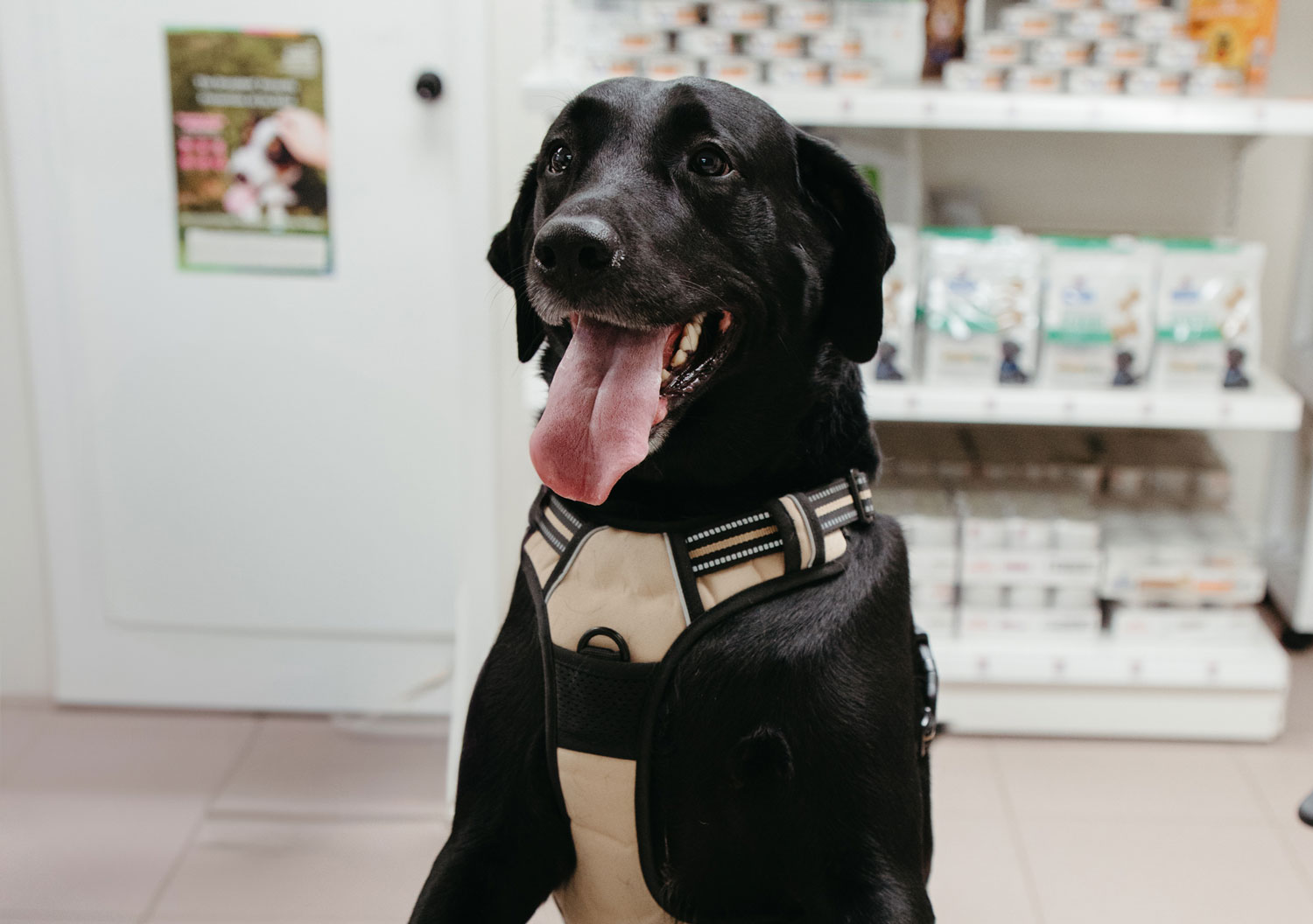Pet Dermatology & Allergy Care in Tampa, FL
Just like humans, pets can develop allergies. Is your pet scratching, chewing, or licking excessively? Are you noticing discolored fur where they are licking too much? What about hair loss? These can all be symptoms of allergies in pets. Believe it or not, environmental allergies in dogs are one of the most common reasons for vet visits at Wellswood Midtown Animal Hospital!

What Are Pet Environmental Allergies?
Environmental allergies occur when there is an exaggerated immune response to an allergen. An allergen is a protein that comes from exposure to things like tree pollen, grass pollen, dander, and flea saliva. Your pet can develop antibodies to an allergen and then overreact to it. This leads to skin inflammation and itchiness.
How Do You Diagnose and Treat My Pet’s Environmental Allergy?
Allergy testing can be performed on your pet to determine what they are allergic to. As with humans, intradermal allergy testing is considered the gold standard in dogs. If we observe a positive allergic reaction to a particular allergen, we know this is a trigger for them. An alternative method in dogs is blood allergy testing; however, in some pets, blood-based allergy testing may not give any positive answers.
Once we know what your pet is allergic to, we can consider desensitization therapy using oral drops or injections. This treatment is effective and helpful in about 70% of allergic dogs. Environmental allergies can also be treated with medication or medicated baths for symptomatic control. We will discuss your pet’s unique condition and work with you to determine the best treatment.
What Is a Food Allergy?
A food allergy occurs in your pet when there is an overreaction of the immune system to a particular ingredient in their diet. This can cause a variety of uncomfortable symptoms including inflammation of the skin, intestines, eyes, and respiratory system. Some signs of food allergies in dogs and cats include:
- Red skin or ears
- Dry skin
- Dandruff
- Oily skin and hair
- Ear infections
- Skin infections
- Over-grooming cats
- Self-grooming in dogs
- Hot spots
- Hair loss
- Gastrointestinal problems
- Watery or red eyes
- Sneezing
- Swelling
How Do You Diagnose and Treat My Pet’s Food Allergy?
If we suspect that your dog or cat has a food allergy, we may recommend a dietary elimination trial using a specific food for a period of time. This is considered a diagnostic test and should be performed under the supervision of a veterinarian. It is not simply a change of food. The best food will be determined based on your pet’s age, general health, previous diet, and the symptoms that are being exhibited. We may recommend a food that is composed of hydrolyzed protein. This is a protein that is broken up into tiny molecules that the immune system is unlikely to recognize as the “problem ingredient.” In some cases, an elimination food trial using a single protein source may be recommended. We will work closely with you and your pet to determine the best way to determine and treat your pet’s food allergy.
At Wellswood Midtown Animal Hospital we understand how much you love your pet. No matter the reason for your visit, we will make sure your pet receives the best care available from professionals who truly care. To learn more about pet allergies and treatment or to make an appointment, call us today at (813) 877-1979


Care For Your Pet
Call Or Visit Us Today!
Phone
Service Area
Hours
Friday (8AM to 3PM)






















